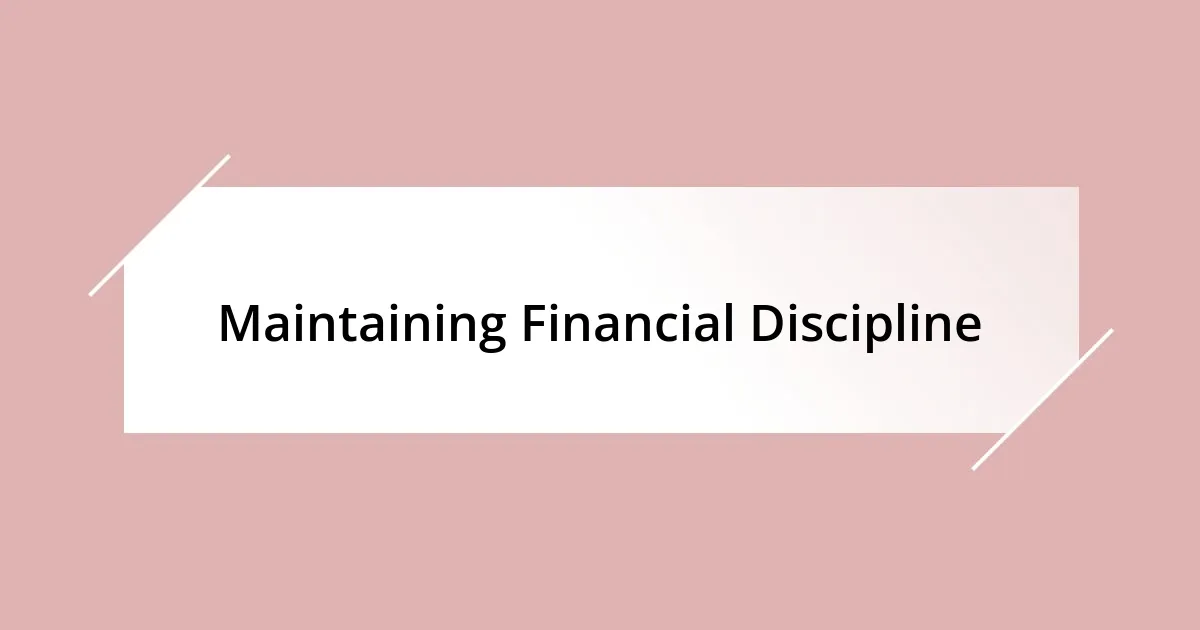Key takeaways:
- Earning a six-figure salary signifies financial stability but does not guarantee happiness; fulfillment comes from aligning work with personal values.
- Identifying your career path involves reflecting on passions, strengths, and setting clear goals, leading to greater job satisfaction and income.
- Networking is crucial; building genuine relationships can uncover unexpected opportunities and provide valuable mentorship.
- Effective salary negotiation requires preparation, clear articulation of value, and leveraging silence to strengthen your position.

Understanding Six-Figure Salaries
Understanding six-figure salaries is not just about the numbers; it’s about the lifestyle and opportunities they can unlock. I remember when I first grasped the concept of a six-figure income—I was in a job that barely made ends meet. The thought of earning over $100,000 seemed like a far-off dream, and I often questioned if it was really achievable for someone like me.
Earning a six-figure salary signifies financial stability and opens doors to various experiences. Have you ever daydreamed about what you could do with that kind of money? For me, it meant finally being able to take that spontaneous trip I had always talked about. It wasn’t just about the financial gain; it transformed how I viewed my worth in the professional world.
It’s important to recognize that a six-figure salary doesn’t automatically equate to happiness or fulfillment. In my journey, I’ve encountered individuals who earn significant incomes yet struggle with burnout or dissatisfaction in their careers. Have you considered what truly drives you, beyond the allure of a high paycheck? It’s that deeper understanding that ultimately shapes a fulfilling professional life.

Identifying Your Career Path
Identifying your career path can feel overwhelming, but it’s a crucial first step in achieving that six-figure salary. I vividly remember feeling lost in my early career; I dabbled in various roles, each one leaving me more unfulfilled than the last. The turning point for me was when I sat down and made a list of my passions, skills, and values. It opened my eyes to the possibilities that aligned with who I truly am.
To help you in this journey, consider the following steps for identifying your ideal career path:
- Reflect on your strengths and weaknesses.
- Write down what excites you—what work could you see yourself doing every day?
- Research potential careers that align with your interests.
- Seek mentorship or advice from professionals in your desired field.
- Set clear, achievable goals to stay focused on your path.
This process isn’t just about making a living; it’s about crafting a life you’ll love. I found that when I aligned my work with my values, not only did my income grow, but so did my satisfaction.

Building Relevant Skills and Experience
Building relevant skills and gaining experience are crucial steps toward achieving a six-figure salary. I remember my first job where I was eager to learn but lacked direction. I took the initiative to seek out training programs and volunteer for challenging projects. This proactive approach quickly set me apart from my colleagues. When I look back, embracing every opportunity to develop my skills paved the way for my financial growth.
Real-world experience is equally important. I sought internships that aligned with my career goals, allowing me to apply theoretical knowledge in practical settings. Each internship brought its own set of challenges, but I learned to view obstacles as stepping stones. Have you considered how hands-on experience could elevate your understanding? For me, it transformed how I approached problem-solving, making me more valuable to employers.
Additionally, networking cannot be overstated. Building relationships in my industry introduced me to mentors who guided me through my journey. I recall a moment when one of my mentors recommended me for a position that I had never thought myself capable of. Those connections not only expanded my skill set but also opened doors I didn’t know existed.
| Skills/Experience | Importance |
|---|---|
| Relevant Skills | Directly enhance your employability and earning potential. |
| Hands-on Experience | Provides practical knowledge and builds confidence in your abilities. |
| Networking | Crucial for finding opportunities and gaining insights from seasoned professionals. |

Networking for Career Advancement
Expanding my network has been one of the most transformative steps in my career journey. I still remember attending a conference where I felt out of my depth among seasoned professionals. But as I struck up conversations over coffee, sharing my aspirations and hearing their stories, I realized that building genuine relationships is invaluable. Each person I connected with not only expanded my horizons but became a vital part of my support system, often nudging me toward opportunities I wouldn’t have discovered alone.
One particularly impactful moment came when a colleague I had met through networking reached out and encouraged me to apply for a position that seemed daunting. “You’re more qualified than you think,” they assured me. That small vote of confidence pushed me to take a leap, and I landed a job that significantly increased my earning potential. Have you considered how a simple conversation can change the course of your career? Often, it’s those unexpected connections that serve as the bridge to your next big opportunity.
Networking isn’t just about exchanging business cards or adding contacts on LinkedIn; it’s about cultivating relationships that foster mutual growth. I’ve volunteered for projects not just for the experience, but to connect with influential mentors who guided me through complex challenges. I cherish every lunch meeting and coffee chat because behind each interaction is a chance to learn, collaborate, and elevate one another. Trust me, investing time to nurture these relationships is one of the smartest moves you can make.

Leveraging Job Opportunities
Leveraging job opportunities requires a keen eye for potential paths that can accelerate your career growth. I remember a period when I felt stuck in a role that wasn’t aligned with my ambitions. Instead of waiting for opportunities to come to me, I started actively seeking projects that challenged my skills and aligned with my goals. It was in those moments of stretching myself that I discovered job openings I never knew existed, ultimately leading to a significant salary increase. Have you ever considered what possibilities lie just beyond your comfort zone?
In my experience, being open to lateral moves often paves the way for upward mobility. I once accepted a role that appeared less prestigious on paper but offered invaluable access to influential leaders in my industry. That decision taught me to look beyond titles. The connections I made during that time not only enriched my skill set but also fast-tracked my journey to a six-figure salary. How willing are you to explore opportunities that might seem less appealing at first glance?
Taking initiative can also make a huge difference. I learned this firsthand during my early career when I volunteered for cross-departmental collaborations. It was as if a whole new world opened up for me; I could see how different teams operated and where my skills could add value. This exposure helped me position myself as a key contributor, leading to advancement opportunities that I wouldn’t have encountered otherwise. Have you thought about how a proactive mindset could reshape the trajectory of your career? The results might just surprise you.

Negotiating Your Salary Effectively
When it comes to negotiating your salary effectively, preparation is key. I remember the first time I walked into a negotiation with a number in mind, feeling both excited and nervous. I had researched the industry standards and gathered data to back my request. Armed with this information, I found that presenting my case confidently made a noticeable difference. Have you ever felt that surge of empowerment when you know you’re well-prepared?
It’s essential to articulate your value clearly during negotiations. I once found myself in a discussion where I was asked to justify my desired salary. Instead of getting flustered, I spoke about the specific projects I had led, the revenue increases they generated, and the skills I brought to the table. When I highlighted my contributions, the conversation shifted from just a number to my overall impact. How can you showcase your achievements in a way that resonates with potential employers?
Lastly, don’t shy away from silence in negotiations. There was a pivotal moment when I asked for a higher salary than initially proposed and then simply paused. The silence can be powerful—it gives the other person time to consider your request. That moment not only demonstrated my seriousness but also encouraged them to rethink their initial offer. Have you considered how embracing a bit of quiet can amplify your negotiating power? Sometimes, less really is more.

Maintaining Financial Discipline
Maintaining financial discipline has been a cornerstone of my journey toward a six-figure salary. Early on, I noticed how easy it was to drift into mindless spending, especially when I wasn’t fully aware of my financial habits. So, I started tracking every expense, from my morning coffee to my monthly subscriptions. It was eye-opening! Have you ever taken a close look at where your money goes? I realized that small adjustments could free up funds for more significant investments in my future.
One strategy that worked wonders for me was creating a budget. I set clear categories for my spending—necessities, savings, and discretionary funds. Sticking to this budget was a challenge at first, but I found it incredibly empowering. I remember a time when I resisted a tempting shopping spree, reminding myself of my long-term goals. It felt like saying “no” to instant gratification opened up space for future opportunities. What’s your approach to budgeting—do you stick to it, or is it more of a guideline?
Another critical aspect of my financial discipline journey has been the commitment to saving consistently. Initially, I automated my savings so that a portion of my paycheck would go directly into a savings account. It felt like setting aside money without even thinking about it. Over time, those small contributions turned into a significant cushion that allowed me to invest in my professional growth—courses, certifications, and even networking events. Have you thought about how automation could simplify your saving process? Seeing my savings grow was incredibly satisfying and reassuring as I worked towards my income goals.














